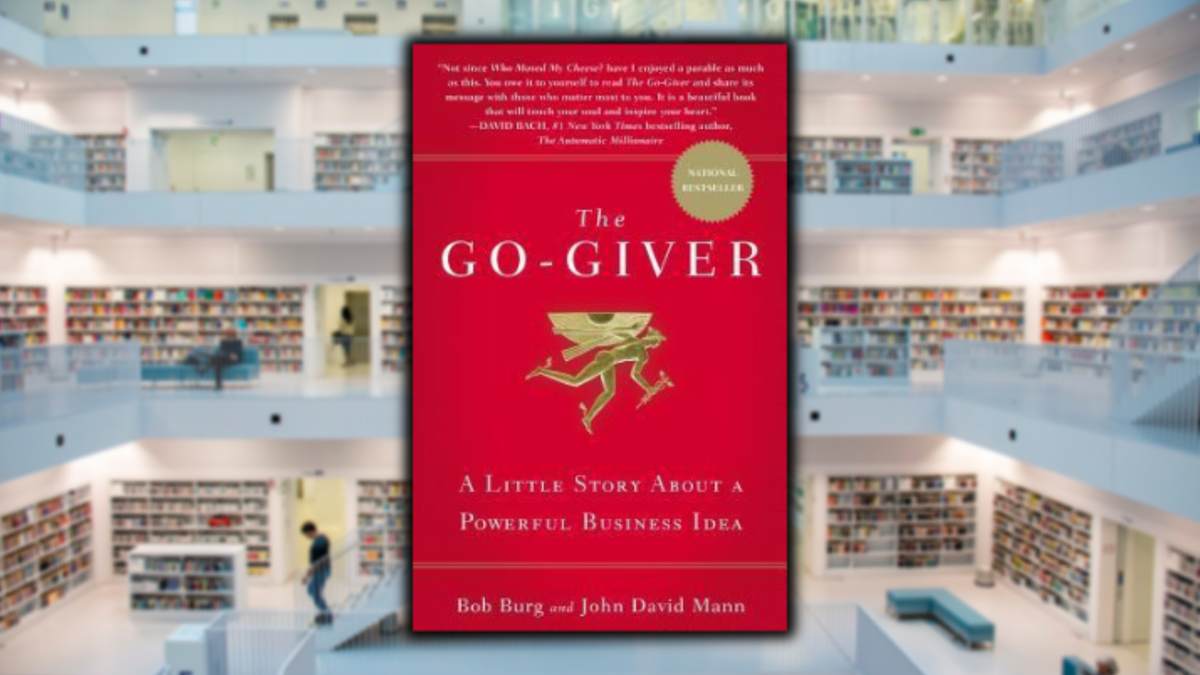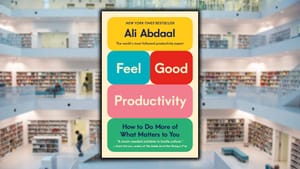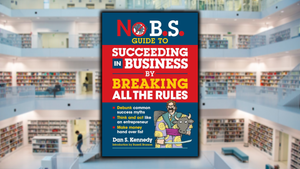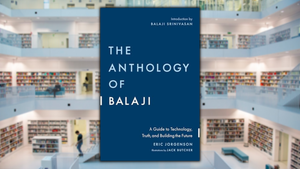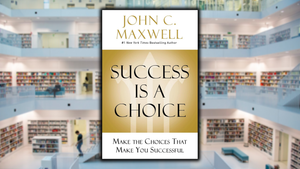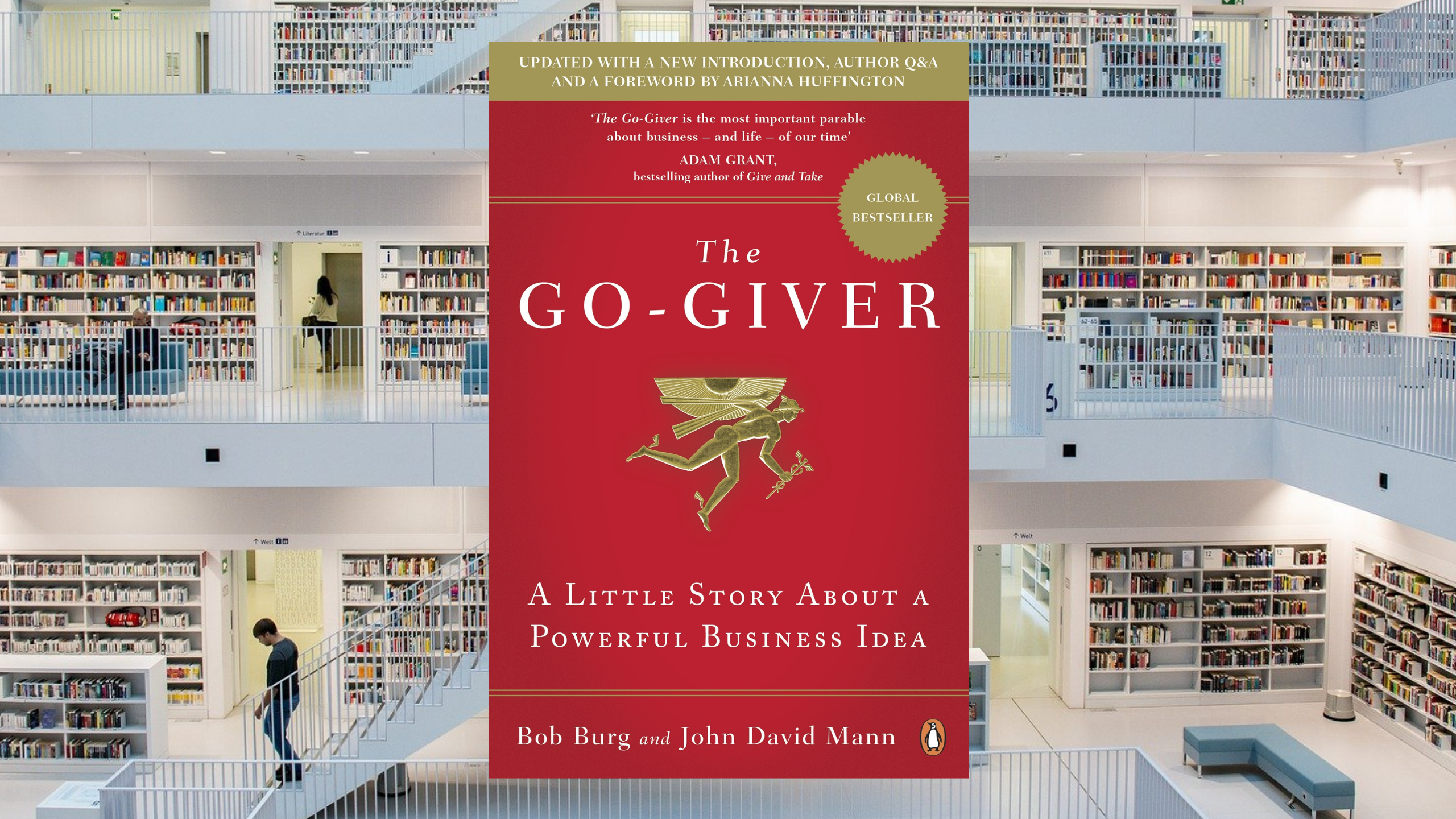
This Book is For:
*Anyone who wants to learn how generosity and win-win business practices can help them succeed in the modern economy
*Business owners looking for new, effective strategies for both increasing profits and increasing customer goodwill and satisfaction
*People who are interested in living a more selfless, generous lifestyle, while still providing for themselves and the people they care about
Summary:
“If you want more success, find a way to serve more people.”
-The Go-Giver
In the modern economy, mean guys finish last. There's been a complete reimagining of the possibilities for mutual assistance and cooperation that's transforming how we do business, and today, it's possible to "do well by doing good."
The Go-Giver is a wildly popular business book that demonstrates "The Five Laws of Stratospheric Success" through the parable of Joe, an ambitious young man who desperately wants success but has no idea how to get it.
Here are the Laws:
#1: The Law of Value
#2: The Law of Compensation
#3: The Law of Influence
#4: The Law of Authenticity
#5: The Law of Receptivity
Joe is still possessed by the belief that the world of business is "everyone for themselves" and that in order to get ahead, someone else has to fall behind. On the last day of the 3rd quarter, he's behind on his quotas, and with very little hope of not getting fired.
Side Note: In the story, he works at the Clason-Hill Trust Corporation, which is an amalgam of the names of George Clason (author of The Richest Man in Babylon) and Napoleon Hill (author of Think and Grow Rich), both of which are absolute classic personal finance books in their own right.
Anyway, back to the story...
Desperate to avoid losing his job, Joe asks one of his co-workers for an introduction to Pindar, known to people in the company as the "Chairman," who Joe believes can save him from joblessness by the end of the week. Either by flattery or trickery, Joe intends to get what he needs from the "Chairman" and save himself.
As luck would have it, Pindar agrees to teach Joe the Five Laws of Stratospheric Success, one per day for a whole week, on the one condition that Joe applies each law by the end of the same day on which he learns it.
Over the next week, Pindar introduces Joe to a series of “go-givers:” a restaurateur, a CEO, a financial adviser, a real estate broker, and the “Connector,” who brought them all together. Each one of them teaches Joe one of the laws, supervised by Pindar, and gradually transforms Joe from a "go-getter" into a "go-giver."
Since this book carries such an important message and really doesn’t take that long to read, I often insist that people read it for themselves.
And not just businesspeople, either! It’s about giving generally, and how you can get anything you want in life as long as you help enough other people get what they want. It's about helping instead of hoarding.
Those who work together, win together, and this “helping” thing isn’t just “a nice thing to do,” but it's actually the way that wealth and success are created in the modern economy. I suspect that this is how it has always worked, but sometimes civilization is slow to catch up.
The Go-Giver is simply studded with counter-intuitive ideas about the nature and power of giving, and its message is a timely one. The world is more interconnected and abundant than it's ever been, and there's more than enough success to go around.
The key is to give without expecting anything in return - to trust, knowing that what you put in is pretty much exactly what you get out. That's how life works!
You wouldn't expect to get heat from a fireplace without putting in a log, or expect to earn interest from your investments without making a deposit, so why would you expect to get anything before you're willing to give?

Key Ideas:
#1: The Law of Value
"Your true worth is determined by how much more you give in value than you take in payment."
The most successful businesses and businesspeople always provide more value than they receive in compensation - the magnitude of their contribution far outweighs anything they take in the form of payment.
Your goal - if you want to maximize profits and stand out from the competition - is to make an offer that is so good that people would feel stupid for saying no. You just hit them with so much value for what they're paying that you become the obvious choice, thereby rendering your competitors irrelevant.
You can do this in many ways, and importantly, it doesn't always have to do with the product itself. Sometimes, what separates you from your competitors is the level of care that you provide, the experience that you create for your customers, and simply your genuine concern for their well-being and satisfaction.
It's funny, in our society we used to notice when service was bad; today, we notice when service is good! Below-average to mediocre is the baseline expectation, and if you can deliver more value than that, then potential customers will start to take notice.
There's a ton of competition today for average, but almost none for excellent. Above and beyond - nobody seems to want to try and achieve that level of service and care. If you do, however, you will be rewarded.
#2: The Law of Compensation
"Your income is determined by how many people you serve and how well you serve them."
The magnitude of your contribution will differentiate you in the marketplace, but so will the scale of your contribution. A heart surgeon provides massive value to just a few people, and he or she is rewarded for that, but their efforts don't scale. They can only operate on so many people per day.
However, a company like Starbucks makes just a small contribution to the happiness or life satisfaction of their customers, but they do it millions of times a day, all over the world, to a vast assortment of different people. The scale of their contribution is enormous.
This works together with the law of value, and your success is a direct reflection of how you can provide value at a certain scale and magnitude. If you are the reason why a large number of people's lives are made better each and every day, then you will be massively rewarded in the marketplace. It's about service, at the end of the day.
But not only that, operating in this way makes for an incredibly meaningful life overall. A life of service is worthwhile and valuable, no matter what. If you can be of service to a large enough number of people, in a way they find valuable, then you will be rewarded.
#3: The Law of Influence
"Your influence is determined by how abundantly you place other people’s interests first."
You become a person of influence to the degree that you become a person of value and character - the two are inseparable. You can have a million followers on Instagram, but if you aren't a person of upstanding character, then you can never be a person of real influence.
Givers also practice something called infinite horizon networking, a term discussed in detail in Dorie Clark's book, The Long Game. Short-term, selfish networking is all about "What can I get?" Whereas infinite horizon networking represents a fundamentally different stance altogether. It's a commitment to long-term growth, development, and mutual aid, and it's the future of networking.
Look for how you can help people achieve their goals and they will want to reciprocate. One of the most fundamental human needs is the craving to be appreciated, but right up there in importance is the desire to give back to those who have helped us in the past.
It used to be - decades ago - that the way you gained power in the corporate environment was to hoard information and resources and make sure the flow routed entirely through you; you made people come to you, therefore you were powerful. Not anymore.
Today, when you enter wholeheartedly a network of people focused on mutual assistance and growth - a giving network - you are setting yourself up for real power and influence.
Besides, change happens too fast today to be able to hoard anything for long. A week from now, the information you've kept to yourself will be outdated and you'll be left behind.
The really effective strategy to become a person of influence is to make yourself indispensable due to the value you provide to your network. If you place other people's interests first, take a genuine interest in other people's success, and make sure the people around you are winning, then you will be rewarded.
#4: The Law of Authenticity
"The most valuable gift you have to offer is yourself."
The story of humanity is the story of people everywhere consistently undervaluing their own contributions. Simply by virtue of being yourself, you have an incredible amount to offer the world, and the Law of Authenticity demands that you stop hiding and step forward.
There is literally no one else on the planet who is better at being you than you are, and we each possess unique strengths that the world needs. There are no extra people on the planet; we each have something we are called to give, and if you don't step forward and give what you have, then the rest of us will be deprived.
Yet, most people don't believe that they even have anything unique or valuable to offer. They forget that they are capable of learning, and getting better over time; they are simply unaware of their long-term potential.
Sure, maybe your contribution doesn't have much magnitude or scale today, but ten years is a long time for radical accomplishment, and when you keep upgrading your skills, keep showing up, keep contributing what you have, where you are, then eventually, you will be rewarded.
#5: The Law of Receptivity
"The key to effective giving is to stay open to receiving."
The final Law of Stratospheric success was a major missing piece of the puzzle for me, as I suspect it is for a great many other people. For whatever reason, we simply don't feel comfortable receiving what we've in fact earned.
The authors of The Go-Giver never suggest that we can sideline self-interest completely, or even that it's desirable to do so. Human beings will always be somewhat selfish, and that's fine! We would stand almost literally zero chance of survival if we didn't take at least some interest in ourselves.
Luckily for all of us, though, giving and receiving are not mutually exclusive. Giving creates the possibility of receiving, just as there is no receiving without giving.
Also, you're even giving something when you're receiving: you're giving the other person a chance to feel good about themselves and provide value. You're accepting a gift, graciously, and that's what makes gift-giving so special.
Receiving "completes the cycle," so to speak, in the same way that breathing out completes the cycle of breathing in. When you've done the work, when you've made your contribution and you're and you're open to receiving what's coming to you because of it, then you will be rewarded.
#6: Every Business is the People Business
“All things being equal, people will do business with and refer business to those people they know, like, and trust.”
Everything is about people. Relationships are everything in business, yes, but they're also everything in life. No one will remember your profit margins or accounts or whatever but they will remember how you made them feel.
Money is essentially an exchange of value between two people, and if you don't have customers, you don't have a business. So, it stands to reason that if you want to grow your company by increasing the scale and magnitude of your contribution, always focus on the customer (person!) standing in front of you. They're the most important part of any business.
That doesn't mean that the customer is always right (man, customers can be so wrong!), but it does mean that whatever business you're in, you're really in the people business.

Book Notes:
“By ‘be a giver,’ Bob and John mean be a giving person, period: one who gives thought, gives attention, gives care, gives focus, gives time and energy – gives value to others. Not as a quid pro quo, not as a strategy to get ahead, but because it is, in and of itself, a satisfying and fulfilling way to be.”
-Arianna Huffington
"So the secret to success...to gaining it, to having it, is to give, give, give. The secret to getting is giving. And the secret to giving is making yourself open to receiving."
“While the world may at times appear to be a dog-eat-dog place, there is actually a set of much kinder and vastly more powerful principles operating beneath the surface of casual appearances.”
“Most of us have grown up seeing the world as a place of limitation rather than as a place of inexhaustible treasures. A world of competition rather than one of co-creation.”
“What you focus on is what you get.”
“Go looking for the best in people, and you’ll be amazed at how much talent, ingenuity, empathy, and goodwill you’ll find.”
“Ultimately, the world treats you more or less the way you expect to be treated.”
“But a great restaurant – ahh, a great restaurant strives to defy imagination! Its goal is to provide a higher quality of food and service than any amount of money could possibly pay for.”
“‘Does it make money?’ is not a bad question. It’s a great question. It’s just a bad first question. It starts you off pointed in the wrong direction.”
“Givers attract.”
“As long as you’re trying to be someone else, or putting on some act or behavior someone else taught you, you have no possibility of truly reaching people. The most valuable thing you have to give people is yourself. No matter what you think you’re selling, what you’re really offering is you.”
“You want people skills? Then be a person.”
“Money is an echo of value. It is the thunder to value’s lightning.”
“We are all human, which means we’re all driven by self-interest. And we’re not saying you should change that even if you could (which you can’t). What we’re suggesting is that you simply set your self-interest to the side.”
“If you don’t let yourself receive, you’re refusing the gifts of others - and you shut down the flow.”

Important Insights from Related Books:
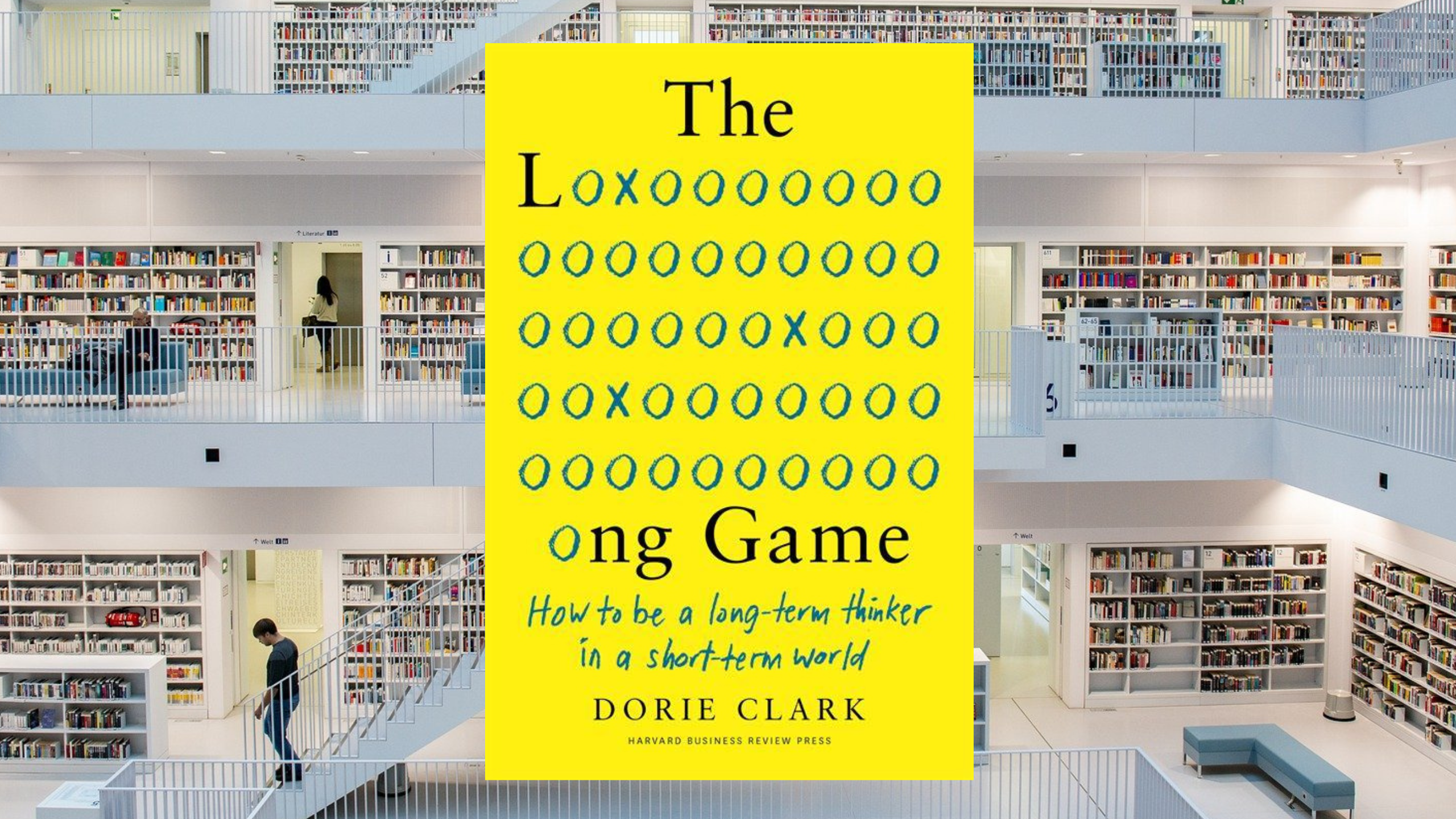
The Long Game, by Dorie Clark:
Dorie Clark, the author of The Long Game, has been named one of the Top 50 business thinkers in the world by Thinkers50, and she's also a frequent contributor to Harvard Business Review. So she knows a thing or two about a thing or two when it comes to playing the long game. She's been at it for a while!
In this book, Clark shows how to sustain meaningful progress over the long term, and she introduces a fantastic idea called "infinite horizon networking." The focus here is on maintaining real relationships across time and setting short-term self-interest to the side. She explains how, when we take a genuine interest in the success of others, they'll generally take an equal interest in ours.
“The challenge for all of us is an inner one: to keep going when it seems like no one is paying attention or cares. And to believe that eventually, the world will catch up.”
“Waiting a year to ask for any favors prevents anyone from inferring that you have an agenda. And frankly, it stops you from having one, even subconsciously. It lets you step back and concentrate on building a genuine friendship.”
“When you connect to others with an infinite horizon – no agenda whatsoever other than being helpful and deepening your relationships with interesting people – that’s how opportunity happens.”
Read the Full Breakdown: The Long Game, by Dorie Clark

Who Not How, by Dan Sullivan and Dr. Benjamin Hardy:
Whatever your limitations, there is someone out there who can help you move beyond them. The best way to solve a problem is to find someone who already knows how to solve it, and that's pretty much the "one-sentence summary" of this incredibly valuable business book.
Instead of asking, "How can I solve this problem for myself?" a better question is to ask, "Who can I get to help me solve this?" Asking the former is just asking for burnout, frustration, and inferior results.
Because the truth is that there are people out there who are experts at doing the things you either hate to do, are bad at, or both, and they are more than willing to help you achieve your goals.
“Once you’re committed to the result you want, you’ll find that Who. When you do find that Who, you’ll see how ridiculously simple it was for THEM to produce your desired result, then you’ll begin to see just how small you’ve been playing.
You’ll begin to set bigger and bigger targets, and you’ll commit to those targets faster by getting the Who that is equipped to produce the result.”
“The best way to measure your progress is by noting the amount and quality of collaborations happening in your life.”
“If you work on something important for twenty years, it will transform everything around you.”
Read the Full Breakdown: Who Not How, by Dan Sullivan and Dr. Benjamin Hardy
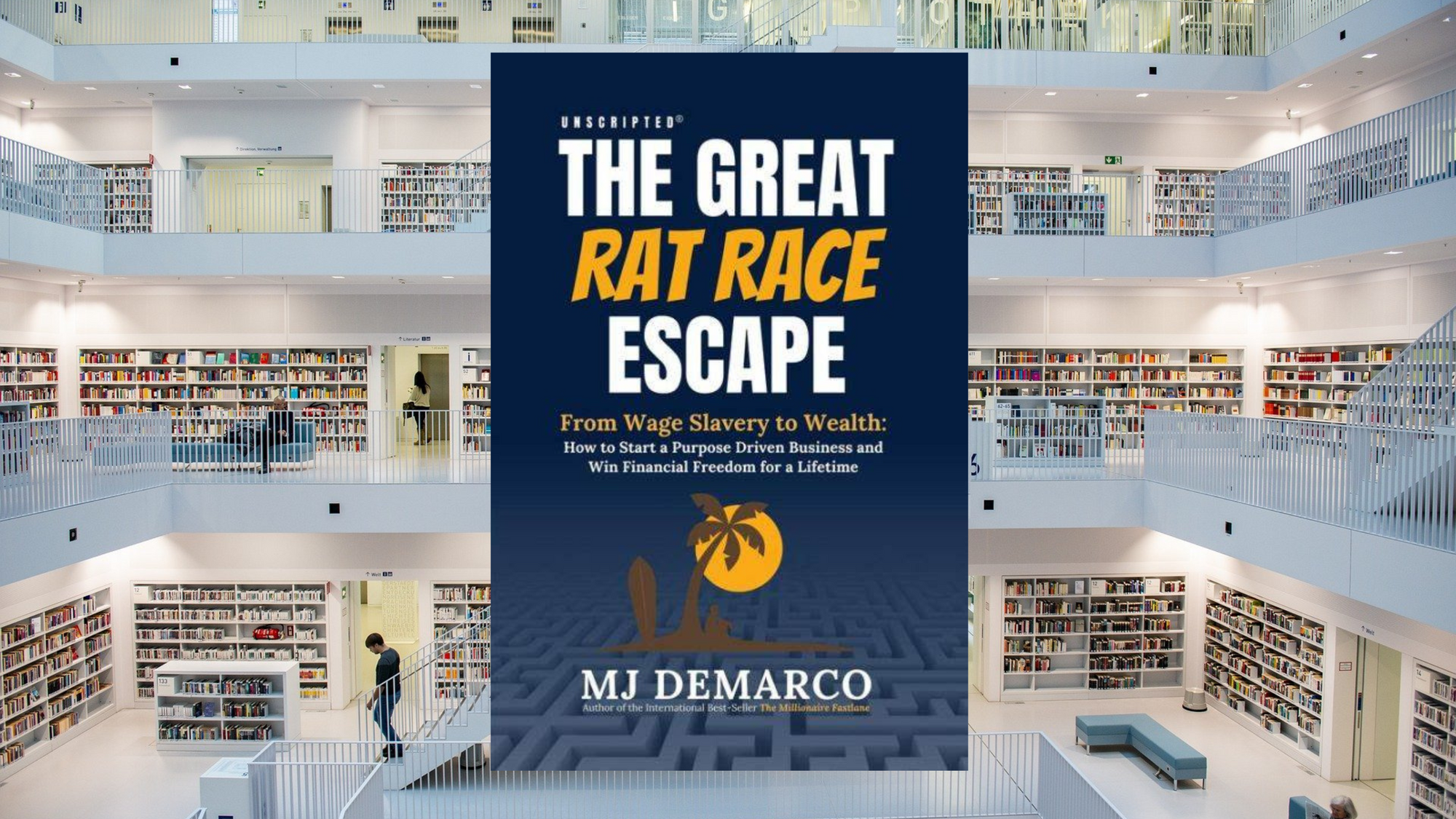
The Great Rat Race Escape, by MJ DeMarco:
An extraordinary life is won on offense and then preserved on defense. This book is about increasing your offensive capacity - and, specifically, about creating an income that will enable you to live free forever - while avoiding the mistakes and pitfalls that derail so many other well-intentioned people as they try to make a big move forward in life.
The Great Rat Race Escape blasphemes against the current “economic religion” of the world, which tries to convince people that they “wouldn’t be too unhappy” working away for 40+ years at a job that they “kinda-sorta like” (or, in many cases, passionately loathe), just so they can maybe - hopefully - get their freedom back fifty years later when they can finally enjoy their money from the safety of the nursing home.
That sounds like a waste of a perfectly joyous life to me, and M.J. DeMarco teaches how we can avoid that fate by starting a business and taking advantage of the internet gold rush that we’re currently experiencing. The creator economy is absolutely booming right now, new businesses are appearing all the time, entrepreneurship is “hot,” and our time is now.
“Our culture thrives on mediocrity and obedience. It is the world’s business model.”
“Anything that can be improved is a business opportunity.”
The CENTS framework that will help determine whether your business has solid fundamentals:
Control – You have full control over your business and you aren’t in danger of losing everything because someone else made a decision that you can’t control.
Entry – It’s too difficult for someone else to enter the market with a similar product or service and compete with you.
Need – Your product or service is something that fulfills a genuine need that exists in the marketplace.
Time – Your profit is divorced from your time so that you don’t physically have to be there when your product or service is sold or generates money.
Scale – Your product or service has no marginal cost of reproduction, meaning that it’s easy and cheap to make more of what you’re selling without you having to put time and money into inventory or creation.
Read the Full Breakdown: The Great Rat Race Escape, by MJ DeMarco
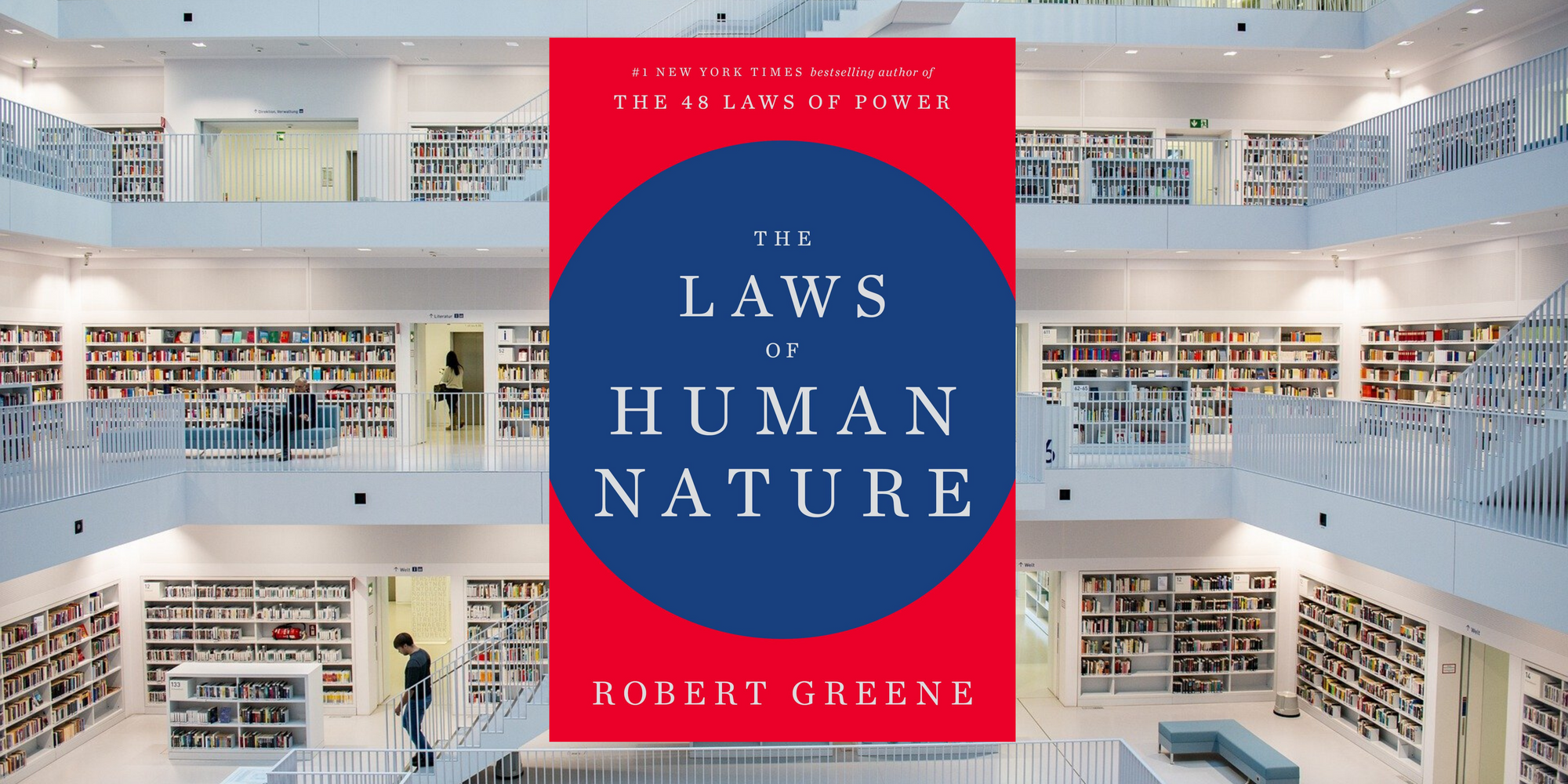
The Laws of Human Nature, by Robert Greene:
We deal with other people all day long, and we're constantly confused and deceived by their words and actions. They do things we don't understand, for reasons we don't have access to, and not all of them have our best interests at heart. So this book is just as much about self-defense as it is about reigning in your own nature and improving the quality of your own close relationships.
But I wouldn't be doing justice to human beings if I made you think that The Laws of Human Nature is all about protection from the negative aspects of human nature. It's not that at all.
Human beings are astonishing, spectacular, and extraordinary. We are amazing in our ability to connect with one another, solve problems together, console each other when faced with the inherent tragedies of human existence, and simply rise above our circumstances.
"People are generally dealing with emotions and issues that have deep roots. They're experiencing some desires and disappointments that predate you by years and decades. You cross their path at a particular moment and become the convenient target of their anger or frustration. They're projecting onto you certain qualities they want to see. In most cases, they're not relating to you as an individual."
"The first step, then, is the most important: to realize you have a remarkable social tool that you are not cultivating. The best way to see this is to try it out.
Stop your incessant interior monologue and pay deeper attention to people. Attune yourself to the shifting moods of individuals and the group. Get a read on each person's particular psychology and what motivates them. Try to take their perspective, enter their world and value system.
You will suddenly become aware of an entire world of nonverbal behavior you never knew existed, as if your eyes could now suddenly see ultraviolet light. Once you sense this power, you will feel its importance and awaken to new social possibilities."
“The deepest principle of Human Nature is the craving to be appreciated.”
-William James
Read the Full Breakdown: The Laws of Human Nature, by Robert Greene
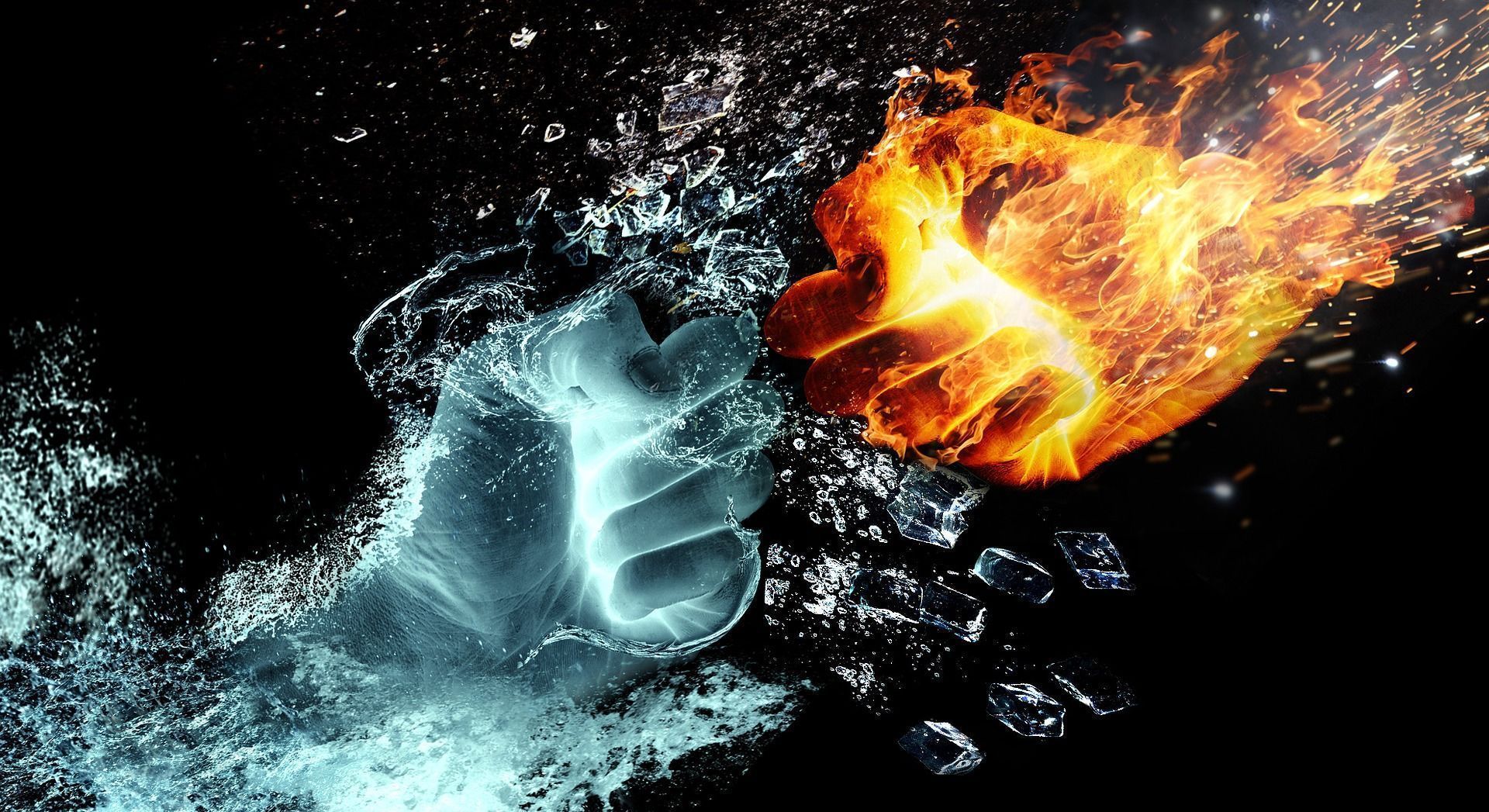
The View from the Opposition:
No one's ideas are beyond questioning. In this section, I argue the case for the opposition and raise some points that you might wish to evaluate for yourself while reading this book.
#1: Go-Getters Get Things Done
Personally, I always cringe when someone describes themselves or someone else as "a real go-getter," but there's no denying it: go-getters get things done. They're ambitious, and hardworking, and they take initiative to bring about changes, either in their own lives or in their organizations and communities as a whole.
So there's nothing "wrong" with being a go-getter, but this is one place where balance is vitally important. A meaningful and successful life can't just be about what you can get; there has to be more to life than extracting as much value as you can from others and ignoring the contribution you can make.
#2: Self-Interest Can Never Be Eliminated (And That's a Good Thing)
The authors never suggest that self-interest can or should be eliminated completely, but rather they advocate for a mature stance toward taking.
They don't say that we should never take what we've earned (in fact, quite the opposite), but rather that we should put our self-interest to the side at first, and trust that if we help enough other people get what they want, we will be helped in turn.
The world is built on this kind of reciprocity, and a life centered around giving is not only likely to be more meaningful and impactful, but more often than not you'll get out what you put in - but you have to give first! In a similar way, you may have noticed that most people are generally friendly, but they're guarded. You have to go first.
#3: Being "Nice" Doesn't Automatically Make You Successful
Being a giver has nothing to do with being a doormat, and also, it won't automatically lead to the success that you're looking for. "Nice guys finish last" isn't necessarily wrong; being nice without ever standing up for yourself and claiming what you've earned won't make you successful either.
Not only that, but The Go-Giver is mainly centered on business success. We all know teachers and firefighters and police officers and others who give give give every single day of their lives and never receive the kind of monetary compensation that they deserve.
"The test of a first-rate intelligence is the ability to hold two opposed ideas in the mind at the same time and still retain the ability to function.”
-F. Scott Fitzgerald
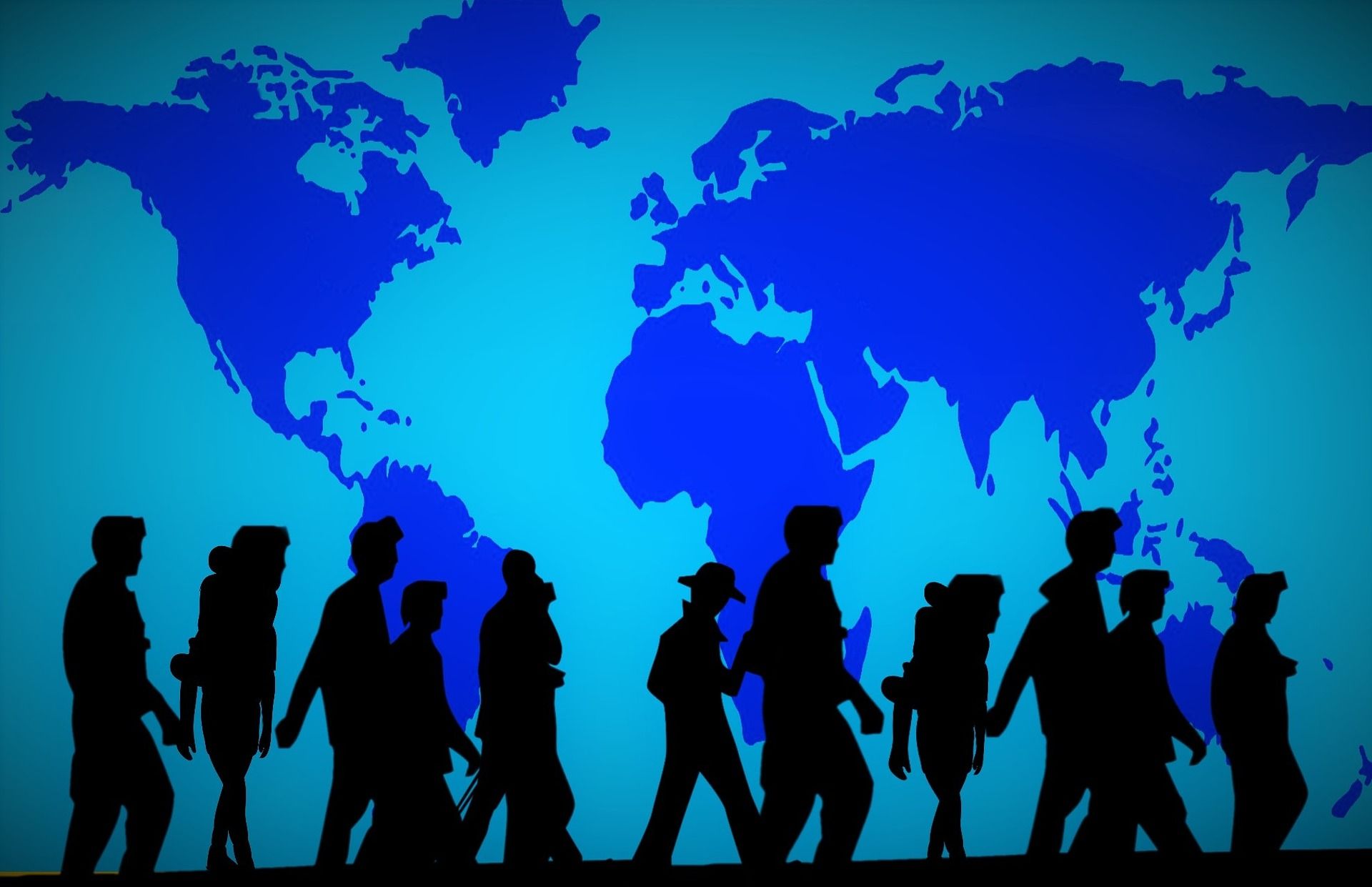
Action Steps:
So you've finished reading. What do you do now?
Reading for pleasure is great, and I wholeheartedly support it. However, when I'm reading for a particular purpose, I am intensely practical. I want a result. I want to take what I've learned and apply it to my one and only life to make it better!
Because that's really what the Great Books all say. They all say: "You must change your life!" So here, below, are some suggestions for how you can apply the wisdom found in this breakdown to improve your actual life.
Please commit to taking massive action on this immediately! Acting on what you've learned here today will also help you solidify it in your long-term memory. So there's a double benefit! Let's begin...
#1: Practice the Law of Value
"Your true worth is determined by how much more you give in value than you take in payment."
This is a fun law to practice, and it's exciting to brainstorm ideas here. What you're trying to do is make sure that whatever you're doing or offering is far more valuable than anything your competitors are doing, and when you see how low the bar is currently set, you start seeing possibility everywhere.
Just look for ways you can add value to people's lives and create experiences for them, above and beyond what you're expected to do. Think of just one thing you can offer in your business that your customers aren't expecting, but that they would appreciate immensely. And then do it!
#2: Practice the Law of Compensation
"Your income is determined by how many people you serve and how well you serve them."
This Law is all about serving more people. It's about scale. So take what you've come up with for the Law of Value and see if you can offer it to more people. Or, if that isn't scalable, find something that is. Find some way to impact more lives, and you'll be rewarded for that.
Think: Starbucks. A great cup of coffee (alright, a good cup of coffee) isn't such a big deal, but at scale? They've built a billion-dollar brand. If you can get something valuable into the hands of more people, you will be rewarded.
#3: Practice the Law of Influence
"Your influence is determined by how abundantly you place other people’s interests first."
Give first before you even think about getting. You can practice this law by thinking about one particular customer or associate of yours and asking yourself what it is that they're after. How can you help them win?
When you think of something you can do for them, just do it, graciously and without making a big deal out of it, and then, release control over the outcome. They may reciprocate and they may not, but you've practiced the Law of Influence, and it will all eventually come back to you.
#4: Practice the Law of Authenticity
"The most valuable gift you have to offer is yourself."
This one is the easiest and the hardest Law to practice! You almost literally have to do nothing in order to be yourself - you're already you! And yet we find it so hard just to relax and be okay with being ourselves, with being real.
So today, let someone see the real you, and stop trying to manage other people's expectations of you and how you should behave. Furthermore, you should get in touch with the feeling that you have something special to offer the world (everyone does), and realize that if you don't make your individual, personal contribution that only you can make, the entire world will be deprived.
#5: Practice the Law of Receptivity
"The key to effective giving is to stay open to receiving."
Okay, I was wrong. This might be the hardest Law to practice! It's so hard sometimes to feel as though we deserve or are worthy of the good things that are coming to us.
If that's you, start small by simply accepting a sincere compliment when it's offered. Just say, "Thank you!" instead of trying to play it down and convince the other person that you're not as great as they obviously think you are! This can be taken too far, of course, but if you don't open yourself to the possibility of receiving, the entire flow of giving is blocked.


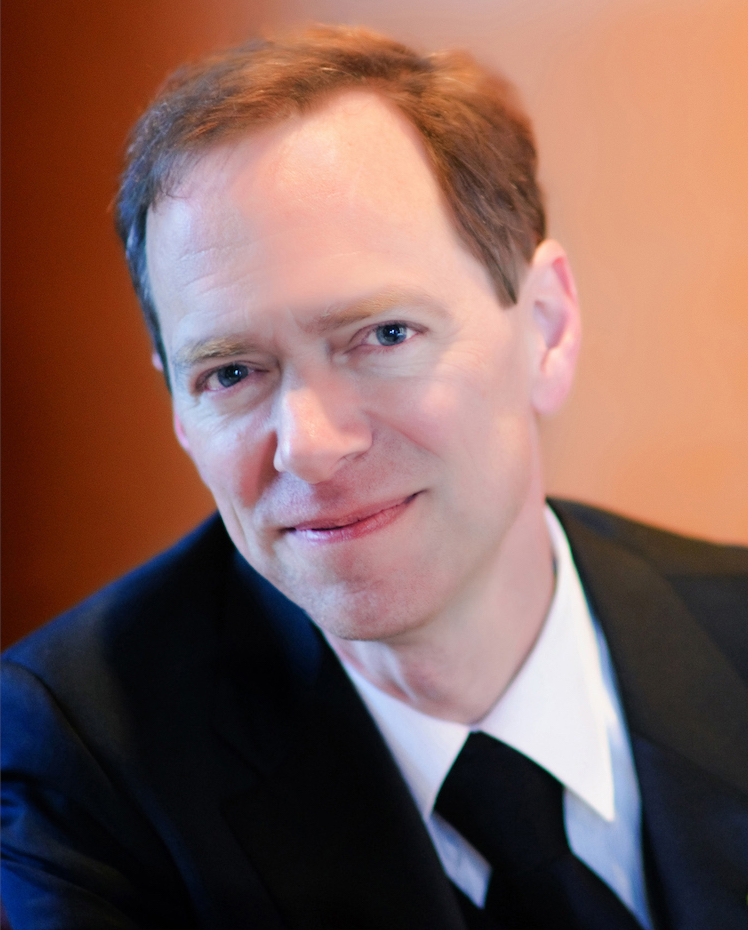
About the Authors:
Bob Burg (left) shares how a subtle shift in focus is not only a more uplifting and fulfilling way of conducting business but the most financially profitable way, as well. For 30 years he’s helped companies, sales leaders, and their teams to more effectively communicate their value, sell at higher prices with less resistance, and grow their businesses based on Endless Referrals.
Bob has regularly addressed audiences ranging in size from 50 to 16,000 — sharing the platform with notables including today’s top thought leaders, broadcast personalities, Olympic athletes, and political leaders including a former United States President.
Although for years he was best known for his book Endless Referrals, it’s his business parable, The Go-Giver (coauthored with John David Mann) that captured the imagination of his readers.
The Go-Giver, a Wall Street Journal and BusinessWeek Bestseller, has sold over a million copies. Since its release, it has consistently stayed in the Top 25 on Porchlight’s (formerly 800-CEO-READ) Business Book Bestsellers List. The book has been translated into 30 languages. It was rated #10 on Inc. Magazine’s list of the Most Motivational Books Ever Written, and was on HubSpot’s 20 Most Highly Rated Sales Books of All Time.
Bob is the author of a number of books on sales, marketing and influence, with total book sales approaching two million copies.
The American Management Association named Bob one of the 30 Most Influential Leaders and he was named one of the Top 200 Most Influential Authors in the World by Richtopia.
Bob is an advocate, supporter and defender of the Free Enterprise system, believing that the amount of money one makes is directly proportional to how many people they serve.
He is also an unapologetic animal fanatic and served on the Board of Directors of Furry Friends Adoption and Clinic in his town of Jupiter, Florida.
John David Mann (right) has been writing about business, leadership, and the laws of success for more than thirty years. As a high school student, he led a group of friends in creating their own successful high school. After establishing himself as a concert cellist and prize-winning composer, he built a multimillion-dollar sales organization of more than a hundred thousand people before turning to writing and publishing.
John is an award-winning author whose writings have earned the Nautilus Award, the Axiom Business Book Award (Gold Medal), and Taiwan’s Golden Book Award for Innovation. In addition to coauthoring the bestselling Go-Giver books with Bob Burg, he is also New York Times bestselling coauthor of The Red Circle (with Brandon Webb) and Flash Foresight (with Daniel Burrus) and the national bestsellers Among Heroes (with Brandon Webb) and The Slight Edge (with Jeff Olson). His Take the Lead (with Betsy Myers) was named Best Leadership Book of 2011 by Tom Peters and the Washington Post.
He is married to Ana Gabriel Mann, and considers himself the luckiest mann in the world.
Additional Resources:
This Book on Amazon:
The Go-Giver, by Bob Burg and John David Mann
If You Liked This Book:
The Go-Giver Leader, by Bob Burg and John David Mann
Go-Givers Sell More, by Bob Burg and John David Mann
Never Eat Alone, by Keith Ferrazzi
Who Not How, by Dan Sullivan and Dr. Benjamin Hardy
Personal Development for Smart People, by Steve Pavlina
